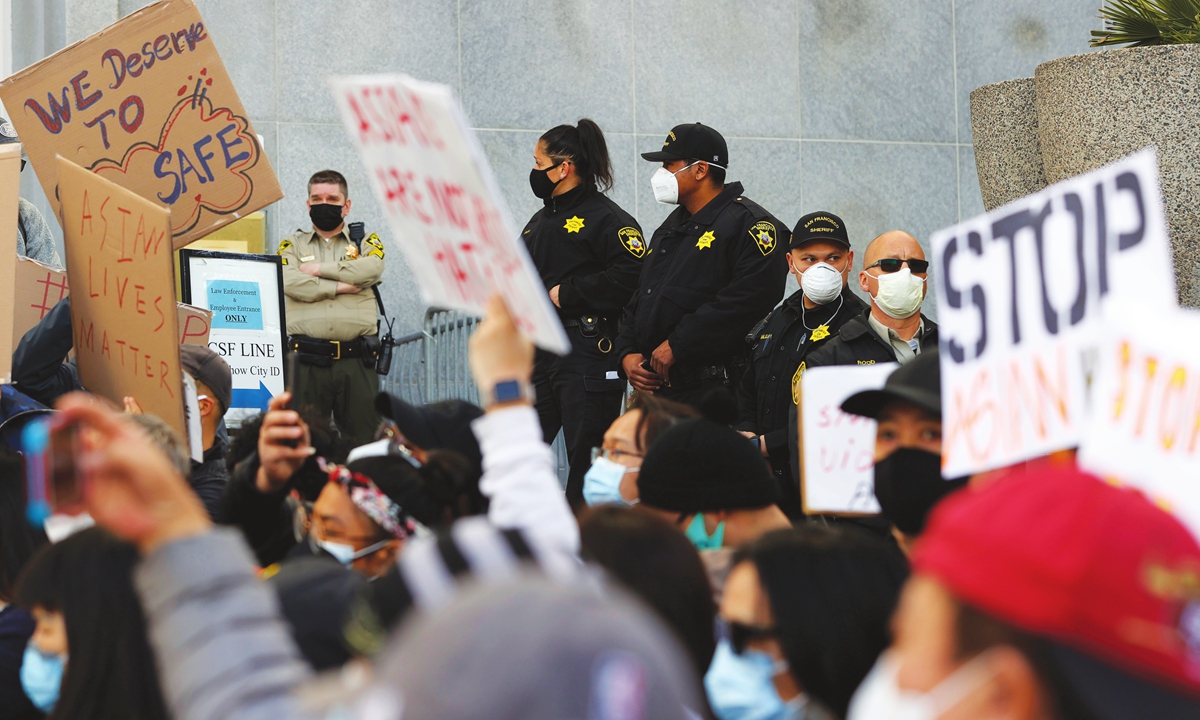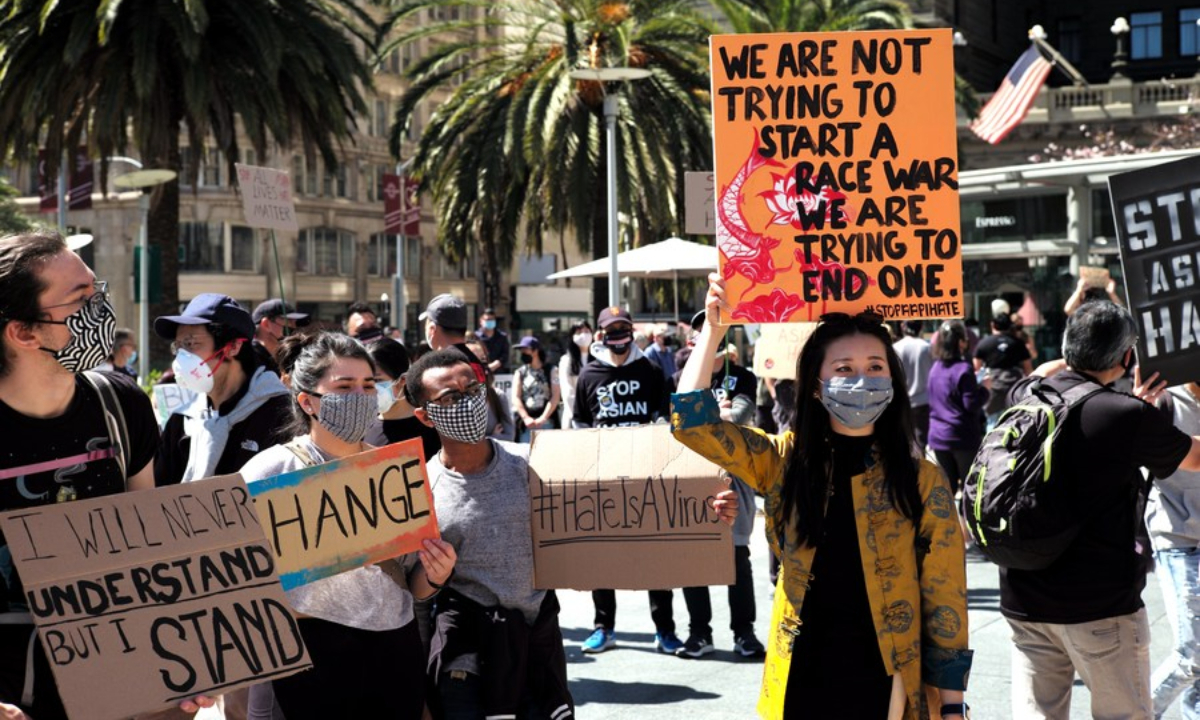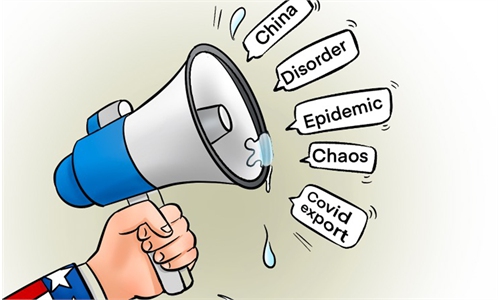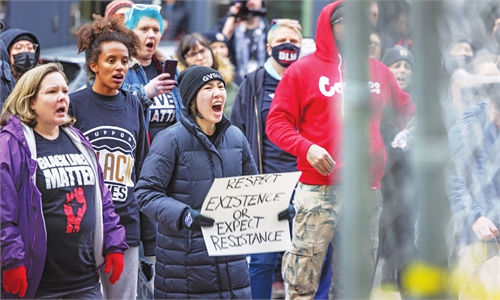
San Francisco sheriff deputies monitor a rally in solidarity with Asian hate crime victims outside of the San Francisco Hall of Justice in San Francisco, California, the US, on March 22, 2021. Photo: VCG
Owing to deep-rooted racism and growing violence, hate crimes in the US have spiked in recent years. While giving federal and central governments endless headaches, this issue will continue corrupting the development and stability of the US society and bring pain to the country's minorities due to the US' inability to govern.
According to an unpublished report obtained by the Voice of America on Saturday, preliminary police data shows that hate crime incidences rose in at least six metropolitan areas in the US in 2022, recording "levels not seen since the 1990s." This comes months before the FBI is set to release its annual hate crime report for 2022.
In New York City, for instance, police recorded 619 hate crime incidences in 2022, up 18 percent compared to 2021 and the highest number since 1992. Meanwhile, 643 hate crime victims were recorded in Los Angeles, up 13 percent from 2021 and the highest number since 2001.

People take part in a rally against racism and violence on Asian Americans at the Union Square in San Francisco, the United States, March 27, 2021. Photo:Xinhua
In recent years, hate crimes have intensified significantly in the US. In 2020, more than 7,700 criminal hate crime incidents were reported to the FBI, the highest number in 12 years. Under the country's current deteriorating social and political condition, it would be no surprise if the number in 2022 exceeded that of two years ago.
Many domestic issues that the US has been facing can easily be magnified in metropolises, as there is a greater diversity - be it racial or ethnic - as well as disparities in these areas. Therefore, one can easily see how divided the US has become with an increasingly dysfunctional system more clearly through the surge of hate crimes in big cities.
On the one hand, data from the FBI show that most hate crimes the bureau records have been motivated by racial bias, especially against African Americans. According to the national census, as of 2020, black people made up 13.4 percent of the US population, yet they made up nearly 35 percent of all hate crime victims. Moreover, anti-Semitic and anti-Asian hate crimes have risen sharply in recent years. It can be said that racism, deep-rooted in US culture and society, is the root cause of most hate crimes.
On the other hand, violence has become the dominant undertone of the US politics and society. As the populist movement emerges and grows in the US, extremism is seen more frequently. In particular, an increasing number of conservatives, many of whom also harbor extreme racial biases, encourage people to use violence to vent their anger and dissatisfaction regarding their own lives. A sense of security has become a luxury for many minorities.
However, most US politicians - who should have helped curb these problems, especially racism - are busy waging partisan wars and advancing their political careers, rather than answering Americans' need for justice and equality, or looking for a solution. While putting personal interests above those of the electorate, they also put many lives of racial and ethnic minorities in greater danger.
Currently, there is no cure for the US' issue of systematic racism. Even if some Americans in the country have displayed willingness and even have taken actions to fight racism, they will find themselves fighting against a system that has long been infected with this disease since the founding of the US. Eventually, their efforts will all end in vain. The chronic disease of racial discrimination will continue to plague American society, and it will make it even more difficult to heal the pain of racial and ethnic minorities in the US.


